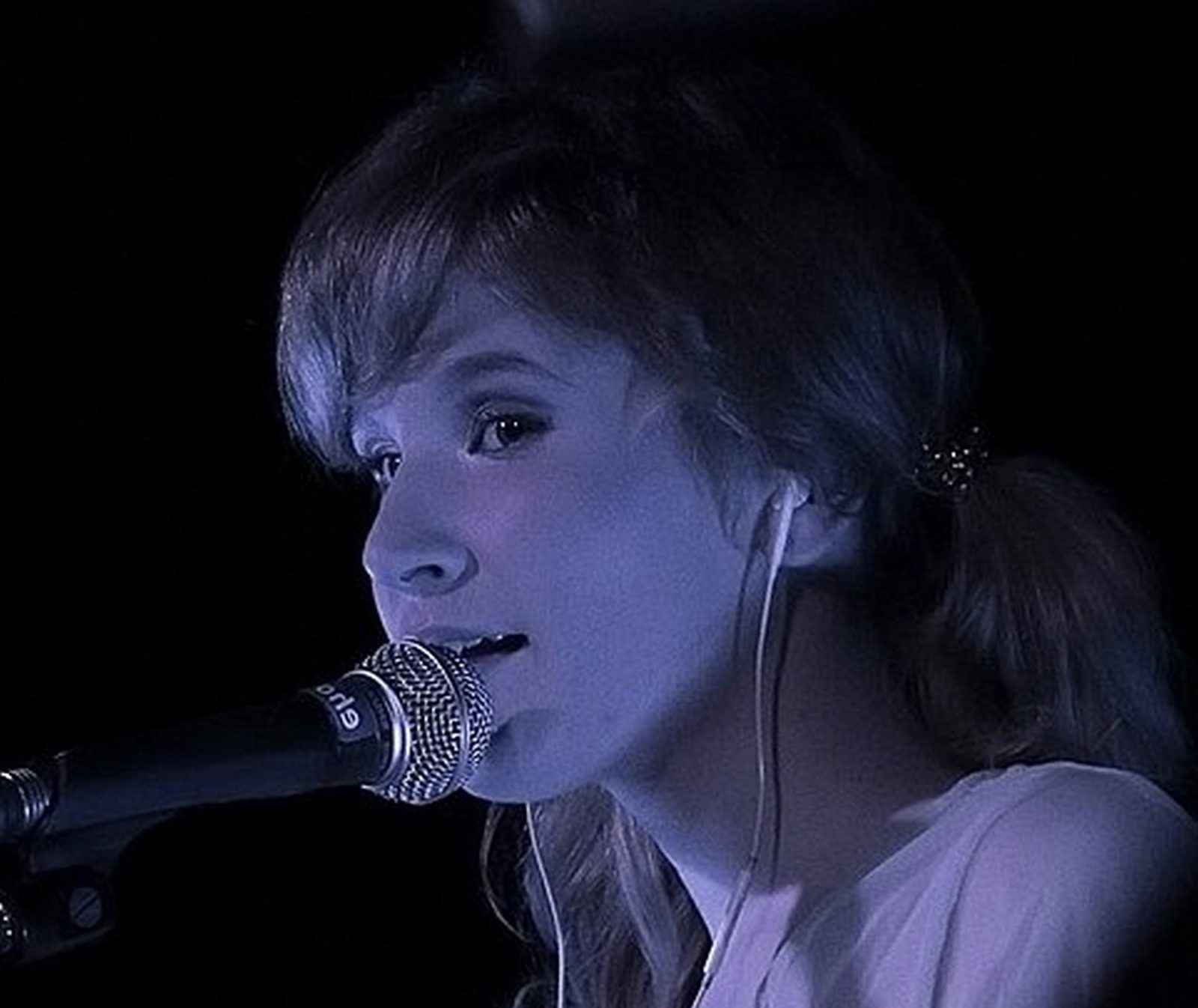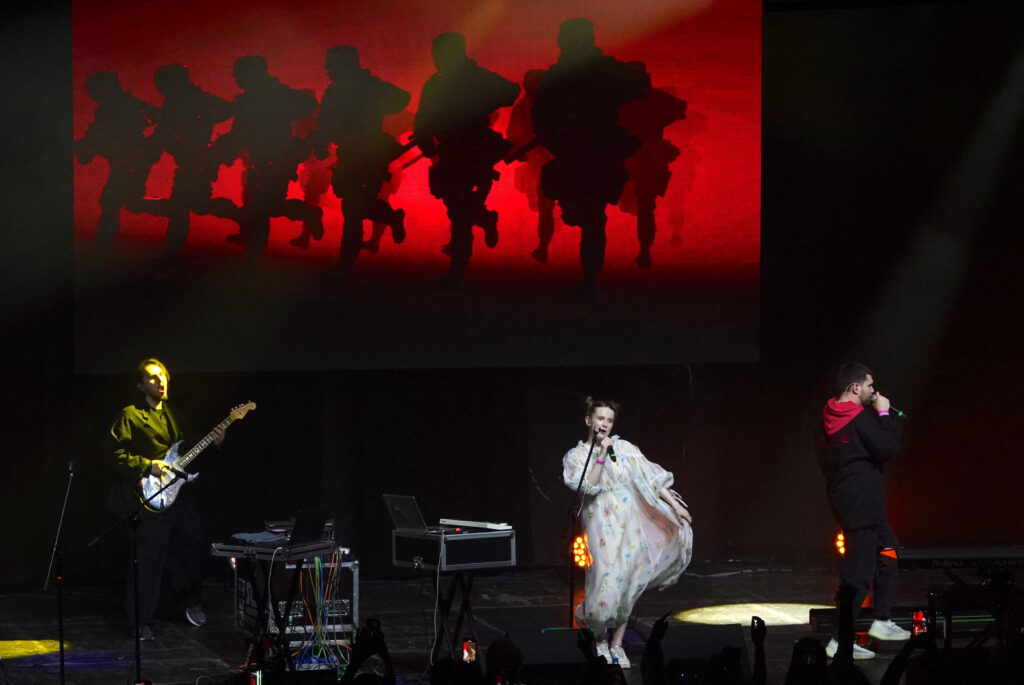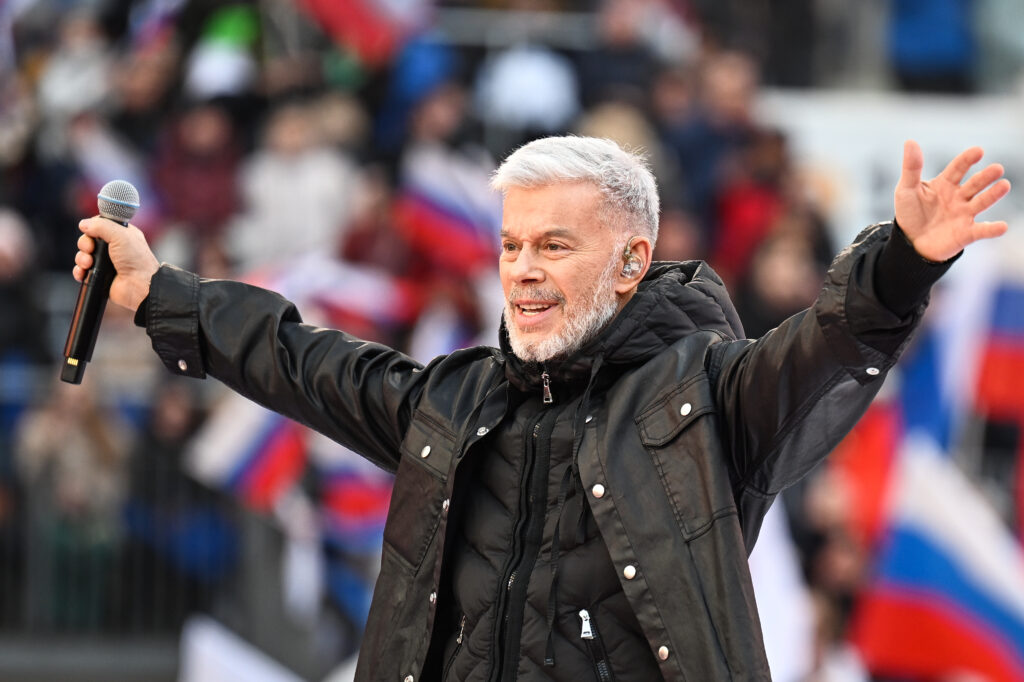Singer Monetochka (Elizaveta Gyrdymova, born in 1998) and her new album ‘Colouring Book for Adults’ became a hit of early summer of 2018 in Russia. The official release of her album, which premiered in Moscow on 1 June, the International Children’s Day and the author’s twentieth birthday, was followed by a number of articles seeking musical and semantic quotes in the album. There were also examples of in-depth analysis of Gyrdymova’s work and its sense for the contemporary culture and politics in Russia. Oleg Kashin describes Monetochka as the voice of Millennials, a generation born and raised under Putin, with the album being characterised as a musical and ideological statement marking the end of the 2010s. Editor-in-chief of GQ Dmitry A. Bykov also rates the album highly and notes its relevance not only for the twenty-somethings, but for anyone interested in the current Russian agenda.
Poor Liza
The hype around Monetochka’s new album seems absolutely justified if we see it as a manifesto of metamodernism: a new sensitivity and a cultural dominant of the near future, which has finally found its sound and made it to the masses. The new sensitivity, which has not yet taken a definitive political or aesthetic shape, means that ideological statements are put in a strategically naive form, a melancholic hesitation between seriousness and irony, sentimentality and “sanity on the verge of cynicism”.
Her previous two albums, i.e. The Psychedelic Cloud Rap (2016) and I am Liza (2017), already contain all the elements of the new aesthetics. For example, the protagonist of the track entitled ‘Russian Art’ speaks of herself as a post-ironic ‘simple exalted lady’, putting trivial feelings into simple rhymes with the help of poetry.ru, being no worse than famous Russian poets Tsvetaeva and Akhmatova. A conservative political stance in ‘The Ukrainian Issue’ (‘Dad took out a Kalashnikov from his safe, he says Crimea is not ours, I say it is’) is neutralised by the children-like ‘la la la la la’.
The new album stands out not only with its higher quality of sound (the album was produced by Viktor Isaev), but also with an obvious interest from the Russian official media and cultural institutions that ensured Elizaveta Gyrdymova’s access to the country-wide audience. The ‘Colouring Book’ was legitimised through state media channels (Monetochka appeared in the ‘Vecherniy Urgant’ show on Channel One attracting a multi-million audience, whereas Ksenia Sobchak and Fyodor Bondarchuk danced to her music during Kinotavr Film Festival). This poses the question of the political relevance of the proposed aesthetics. The authorities’ benevolent attention to the art made by 20-year-olds should not be surprising since, as shown by the pre-election opinion surveys, 86% of young Russians (aged 18–24) supported Putin’s candidacy in the presidential elections, whereas 67% supported the general policy of the country’s development.
‘Post-post and meta-meta’
The term ‘metamodernism’ was proposed in 2010 by the Dutch philosophers Timotheus Vermeulen and Robin van den Akker in their essay ‘Notes on Metamodernism’ and in a number of articles on their website called ‘Notes on Metamodernism’:
The metamodern structure of feeling evokes an oscillation between a modern desire for sense and a postmodern doubt about the sense of it all, between a modern sincerity and a postmodern irony, between hope and melancholy and empathy and apathy and unity and plurality and purity and corruption and naïveté and knowingness; between control and commons and craftsmanship and conceptualism and pragmatism and utopianism. Indeed, metamodernism is an oscillation.
Metamodernism is characterised by interest in the mythological and archetypal. It postulates the need to restore the metanarratives and build new major narratives. ‘Deconstruction is followed by reconstruction’ is the mantra of metamodernism. However, the final reconstruction (the ‘second’ or ‘new’ modern) is unattainable according to the theorists of metamodernism:
Thus, if the modern suggests a temporal ordering, and the postmodern implies a spatial disordering, then the metamodern should be understood as a spacetime that is both-neither ordered and disordered. Metamodernism displaces the parameters of the present with those of a future presence that is futureless…
Thus, metamodernism does not imply revolutionary changes. The search for the new happens through a collision of the incongruous and through hybridisation, through a simultaneous desire to move in some ideological direction (usually a conservative one) and its rejection. Metamodernist strategies are aimed not so much at a synthesis but, rather, at existing ‘in a gap’, in the tense field between opposite poles.
The title of the album, ‘Colouring Book for Adults’, refers to a relatively new phenomenon of colouring books that are made for adults. The global success of this genre is driven, on the one hand, by the demand for digital detox, stress relief and meditation through a simple mechanical task. On the other hand, it is also driven by the need for a new ‘enchantment of the world’, such as, for example, in ‘Secret Garden’, ‘Enchanted Forest’ or ‘Lost Ocean’ by Johanna Basford, the queen of the genre. The genre of ‘colouring books for adults’ initially implies a metamodernist swaying between responsible creativity and irresponsible copying. It is characterised by the desire to create a new colourful world without going beyond the limits of rigid black lines.
The secondary nature (painting other people’s drawings) and citations in Monetochka’s album also have a therapeutic function rather than a critical one (as in postmodern deconstruction), where the main thing is not about mobilisation and transgression but, instead, about relaxation and sleep, about the suppression of an aggressive beginning. For example, the opening track of the album called ‘The Russian Ark’ seems to offer a narrative coming from a radical conservative subject praising Russia as an Atlantis, the unsinkable Kitezh that always floats from the bottom, despite the unfriendly on-lookers standing on the shore. This is an upward movement. The conservative-revolutionary beginning and the revanchist triumph (‘But I scream: ‘Down with the glum thoughts of atheism, Down with Protestants’ dirty heels! Our unsinkable Fatherland won’t be defeated by the Devil’) is supported by an interlude (mass chanting ‘Russia! Russia!’) and a musical quote from Viktor Tsoi’s ‘We are waiting for change’, considered to be the hymn of perestroika. The rhyming chain of ‘spiritual bonds’ (kvass, the Saviour of the Apple Feast Day, oil, gas, iconostasis, Mikhailov Stas) acts as a guarantor and protector against a rhyming chain of threats from the West, including unisex, UFO and GMO.
On the other hand, the future of this ark is unpromising – it faces the eternal present of the Flying Dutchman, who sails the ocean until the Second Coming: ‘And we’ll live forever, and we’ll sail forever.’ The ‘weary Tsoi’ is asleep in the cabin of the ghost ship, whereas Pussy Riot girls have abandoned their senseless resistance, taken off their ugly masks and became pretty yet sad girls. The sailing ship is accompanied by the sounds of sirens (sea virgins or perhaps guardians of order), lulling sailors to sleep, like nanny bedtime tales.
The album contains references to the work of Viktor Tsoi and the 1980s going beyond direct musical quotations. Tsoi is one of the main figures of the Russian metamodernism as a hero of radical openness, proving that internal freedom is possible under any political regime. In 2017, the producer of ‘Colouring Books’ Viktor Isaev, released a cover of Tsoi’s song ‘When Your Girl Is Ill’ as a tribute to his band. In an interview, Isaev likened Tsoi’s work with the poetics of metamodernism. Interestingly, the release of Monetochka’s album coincided with the premiere of ‘Summer’, a movie by Kirill Serebrennikov, which also reconstructs the reckless atmosphere of late stagnation years as an era of ‘blessed timelessness’. The movie and the album do not present the heroism of perestroika years or the revolutionary stance of Tsoi’s musical band ‘Kino’ (something that was in demand during the protests of 2011–2012). Instead, they reflect the withdrawal into the ‘internal Zen’ and Tsoi’s sentimentalism from the times of his hit song ‘The Eighth Grade Girl’ (1982).
Post-actionism as the aesthetics of the fourth term of office
The swaying between childhood and adulthood, political activity and dispassionate observation, is an important ideological dimension of the album (the phrase ‘for adults’ implies adult content that children are forbidden from viewing). Monetochka expresses irresponsibility through her tender childish voice, the dance-like beat, and naive rhyming, which some critics have labelled as talentless writing. On the other hand, we can see quite a clear political position, in a critical dialogue with the art-actionism and Pussy Riot, the symbol of Russian protests during Putin’s third term in office.
Pussy Riot, as an outdated type of ideological and aesthetic expression, is alluded to both in the text of the song entitled ‘Russian Ark’ and on the album’s cover, quoting the well-known pseudo-icon entitled ‘Freedom to Pussy Riot’ painted by Novosibirsk artists Artem Loskutov and Maria Kiseleva. The pseudo-icon also represented an intervention into the urban space (the action ‘The miraculous acquisition of the Pussy Riot icon’). The pseudo-icon was displayed in the lightboxes of Novosibirsk in March 2012 during the Pussy Riot trial. The icon depicts a woman in a balaclava represented in the Our Lady of Oranta iconographic style, in red and blue robe (in the Orthodox tradition, purple and blue are the colours of the Virgin Mary). Instead of Christ Child, the feminist pseudo-virgin holds a little girl on her lap. This pseudo-icon can be classified among the anti-clerical doctored photos – a popular online genre of the 2010s. The Novosibirsk court found the image to be ‘prohibited content’ insulting the feelings of believers.
The visual aesthetics of the ‘Colouring Book for Adults’ reveals a metamodernist rejection of the straightforward utterances characteristic of the art-actionism of Putin’s third term in office. In Monetochka’s album, the blue and the red, borrowed from the pseudo-icon, become the colourful background that pulls the audience out of the current political context and sends them to the esoteric avant-garde of the 20th century, with Malevich, Klein and Mondrian. The sobbing image with a yellow aureole against red and blue squares is difficult to identify: it might be the Saviour, but it might just as well be Putin. A lonely blue tear, characteristic of children’s drawings, is the symbolic element here. However, in the Russian cultural context such a tear refers the audience to the discourse of ‘tears of a child’, i.e. the correlation between a political goal and the means of achieving it. Another significant element is the modification of the canonical iconography: the right hand no longer points to the path to salvation (in Orthodox iconography, this should be the Scripture or the Holy Child). The hand does not show a blessing gesture or a speaker’s gesture. Instead, it is frozen in a ‘stop’ gesture.
Despite the relative diversity of the musical versions of metamodernist sensitivity in the Russian pop culture, created by the generation of ‘tolerant and independent’ people (Luna, Grechka, SBPCH), Monetochka’s album today is the only intelligible manifesto of the aesthetics of Putin’s fourth term in office. This aesthetics is characterised not so much by political apathy but, instead, by an intentional detachment from making direct, engaged ideological statements and from the revolutionary attempts to explore the boundaries of what is permitted (something that a characteristic trait of the Russian protest culture of the 2010s). What we get instead of energetic movements on the ambo is meditation and a sad kind of dance.










